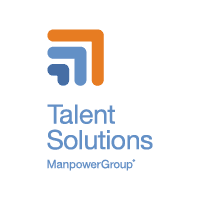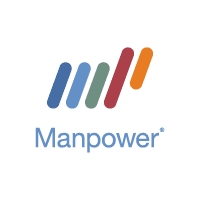More than ever before, the year 2020 solidified the important role Human Resources plays in growing today’s organisations. The global pandemic and social movements highlighting inequalities helped companies refocus on what’s most important to employees: health, upskilling and transparency. Those looking to have the right talent today, and for the future, are beginning to build these themes into their sustainability strategy, and HR is in the lead.
The majority of executives (71%) strongly agree that HR has a vital role to play in establishing the right culture, and 7 in 10 HR professionals have a strategy in place to design an employee experience that mirrors the customer experience. This signifies the emergence of a new employer/employee relationship – one where the employer assumes a greater responsibility for employee health and wellbeing and sees employees as consumers within the organisation. Companies also now have vast amounts of workforce data – from email and computer usage to AI performance analysis. Workers are increasingly comfortable with being monitored, but they expect employers to be transparent and communicative with them to create a sense of trust.
Below are several examples of how HR leaders around the world are capitalising on these new themes in talent sustainability in order to position their organisation for growth in 2021 and beyond.
Theme #1: Health
Just as they created new procedures around social distancing and temperature checks to keep employees healthy and safe, HR professionals are now prioritising employees’ emotional wellbeing to lessen feelings of isolation, anxiety and stress. This isn’t just to retain existing employees but also to recruit the right talent, as energised employees are six times more likely to work for companies that focus on health and wellbeing.
Companies have turned to HR to implement the Government’s advice on safety protocols to protect workers, including limiting gatherings, separating workstations, contact tracing, scheduling more workspace cleanings, and encouraging the use of face masks, just to name a few. These efforts must continue to not only minimise transmission of the coronavirus among staff, but also to foster employee trust and peace of mind that the workplace is a safe location.
On-demand, professional coaching sessions are also moving the needle in supporting employee health and wellbeing. Global accounting firm PwC recently started to provide access to professional coaches who are available to discuss anything that may be causing employee stress. These kinds of sessions provide an invaluable opportunity to listen, learn and understand what workers want and how to support their needs, opening the door to a more resilient workforce.
Theme #2: Upskilling/reskilling
With 65% of the jobs Gen Z will perform not even existing yet, it should come as no surprise that today’s businesses are racing to reskill employees. The need to train and develop new skills to grow the talent pipeline has only intensified as companies were forced to pivot throughout the Covid-19 pandemic and the tidal wave of digital transformation that has come with it.
Walmart, having evolved its in-house upskilling programme over the years, is a great example of how this can be implemented at scale. The Walmart Academy was created in February 2016 to provide needed training to 8,000 new managers, and then to the whole workforce – 2.2 million employees. Today, the retail giant has 201 academies inside Walmart Supercenters and modular classrooms in store parking lots. In 2019, the training integrated with virtual reality (VR) and saw retention increase 10%. The company also says its upskilling efforts resulted in the promotion of 215,000 employees in one year alone.
‘Whether it be soft skills or technical skills, upskilling and reskilling is tied to employees’ desire to continuously learn,’ says Marceline Beijer, Vice President of Talent Solutions at ManpowerGroup. ‘Teaching employees new, relevant skills can provide peace of mind and even happiness, knowing their skillsets won’t become obsolete. It truly can put not only your employees but your entire company in a position of power in 2021 and for years to come.’
Theme #3: Data transparency
Workers in 2021 are calling for more transparency from their employers about their wellbeing and productivity on an individual level as well as around environmental and social issues on a organisational level.
To build employee trust and prevent turnover, HR teams must be prepared to answer new questions from employees on data ownership. For example, HR is now responsible for gathering health data to prevent the Covid-19 spread. As new HR technology continues to be introduced to monitor and improve employee performance, HR professionals are tasked with being the gatekeepers of this data as well. An empathetic and ethical approach is crucial.
Empathetic leadership will also be needed as employees, customers and communities demand organisations to act as global citizens and environmental stewards. Diversity and inclusion are key to preparing for the future of work.
‘This is one area HR leaders themselves should focus on upskilling,’ says Beijer. ‘We are seeing a remarkable rise in ESG [environmental, social and corporate governance], and as the voice of employees, HR needs to have a seat at that table.’
Employees will remember how their employers empathised with them throughout the pandemic. As we move into 2021, organisations that focus on trust and transparency, wellbeing and upskilling will be ahead of the curve in keeping existing employees happy, and attracting new talent post-pandemic.
For more insights on these and other trends in talent sustainability, tune into The Transform Talent Podcast.


